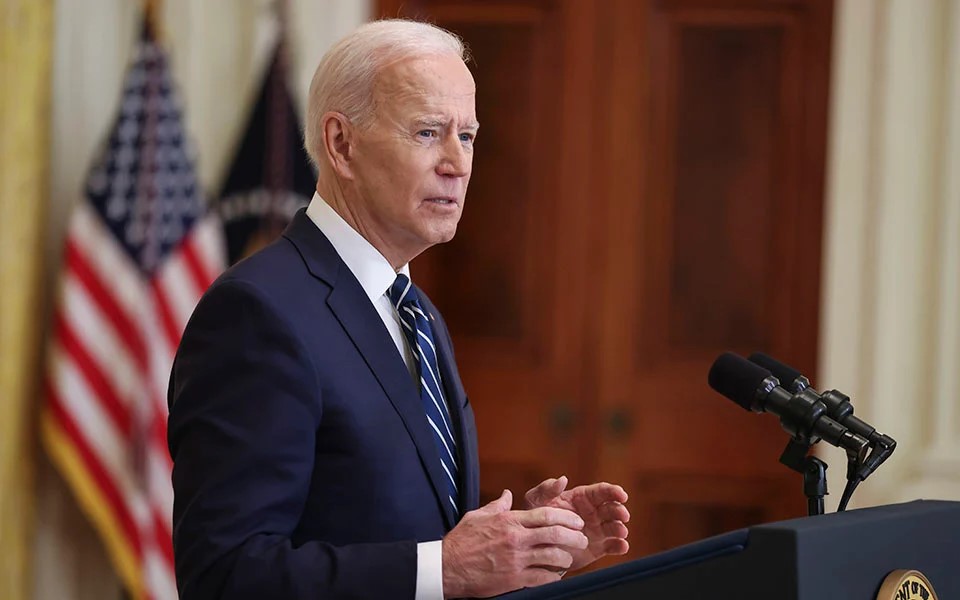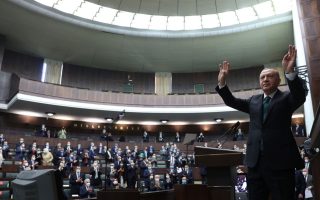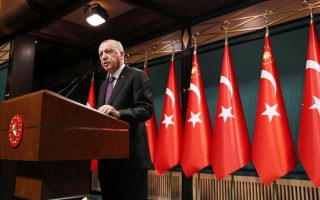An American president with special knowledge

Criticism of Turkish practices by the international community is a recurrent feature in world politics. Recently all 15 United Nations Security Council members condemned President Recep Tayyip Erdogan’s announcement to further reopen the abandoned resort of Varosha in Turkish-occupied Cyprus and agreed that no actions should be carried out that are not in accordance with relevant resolutions. Also, UNESCO expressed its deepest regret over the lack of dialogue and information on Ankara’s intentions to change the character of Hagia Sophia and the Monastery of Chora in Istanbul.
The current juncture is critical for the balance of power in the Eastern Mediterranean. Pressure on US President Joe Biden from several American senators to take action against Turkish provocations is thus rising. The good news for Greece and the Republic of Cyprus is that Biden has a special knowledge of the situation. Former Greek foreign minister Dimitrios Bitsios narrates an interesting story in his memoirs.
In 1977, Biden, then a young Democrat senator for Delaware who had first been sworn in in 1973, participated in the Foreign Relations Committee that was assigned to pose some questions to American diplomat William Everett Schaufele Jr and confirm his appointment as ambassador to Greece. When Biden asked Schaufele about Greek-Turkish tensions in the Aegean, the latter used the lemma “unusual” to describe the proximity of Greek islands to the coast of Turkey. Helen Vlachos, a 1977 article in The New York Times reveals, was among the critics in the media discourse of the usage of this lemma by Schaufele. Greek Ambassador to Washington Menelaos Alexandrakis complained to the State Department by explaining the Greek position in a period during which Turkey was enriching its Aegean claims. Schaufele was never posted to Athens, although he had been already selected by President Jimmy Carter.
In 2008, as running mate of Democratic presidential candidate Barack Obama, Biden spoke to Kathimerini and called for the full withdrawal of Turkish troops from northern Cyprus. Six years later, he became the first American vice president – after the 1962 trip of Lyndon Johnson – to visit Cyprus. Biden underscored the value the United States attached to its growing cooperation with the Republic of Cyprus, elaborated on the reunification of the island as a bizonal, bicommunal federation and encouraged talks between the two communities on a package for Varosha, which Washington would facilitate.
While a presidential candidate in 2020, a statement released by his campaign was titled “Joe Biden’s Vision for Greek Americans and US-Greece Relations.” Among other things, this statement called out Turkish behavior that was in violation of international law and contravened NATO commitments. Against this backdrop, expectations could not but be high for US foreign policy in the Eastern Mediterranean under Biden as president. Conditions are tough and Turkey is different. However, Biden’s determination to succeed and score foreign policy successes in the turbulent region remains unchanged.
Dr George Tzogopoulos, is a lecturer at the European Institute in Nice (CIFE) and senior fellow at the Hellenic Foundation for European and Foreign Policy (ELIAMEP) and the Begin-Sadat Center for Strategic Studies.





